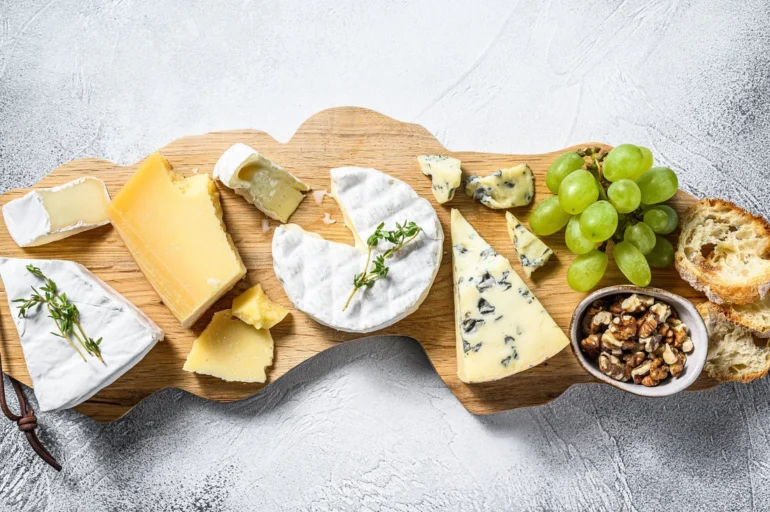Listeners:
Top listeners:
00:00
00:00
volume_up
chevron_left
-
 play_arrow
play_arrow
Radio Today Radio Today
-
 play_arrow
play_arrow
Drivers Seat Motorsport Mike Stroud
-
 play_arrow
play_arrow
Drivers Seat Motorsport Mike Stroud

share
close
Written by Alison Gwinn
Not all processed foods are alike. Not all fall into the “junk food” category.
According to the Department of Agriculture, (USA) processed foods are any raw agricultural commodities that have been altered from their original state. That can include cutting, drying, freezing, pasteurising or packaging.
The Academy of Nutrition and Dietetics places these foods on a continuum, says Nancy Farrell Allen, an Academy of Nutrition and Dietetics registered dietitian: Those that are minimally processed, like bagged spinach, eggs, oats, pasta and plain roasted nuts; those processed at their peak, like canned tomatoes, tuna, frozen fruit and freshly made bread; and ultra-processed foods (in which culinary ingredients or food additives are included for taste or convenience), like flavoured yogurts, salad dressings, packaged crackers/cookies, chips, deli meat, soy burgers, ready-to-eat meals, frozen pizza and soft drinks. That last group is the one many doctors and researchers say you should avoid.
Keep those guidelines in mind the next time you’re at the grocery store.
1. Dairy, soy milk or filtered milk
Soy milk: It’s similar in protein content to cow’s milk and is usually fortified with vitamin D and calcium.” (Stephanie Crabtree, a longevity dietitian and owner of Florida-based Holistic Health RD.) One caveat: Look for organic soy milk, with no sugar or artificial sweeteners.
2. Greek yogurt
“Greek yogurt contains probiotics that support gut health, protein to support muscle repair and calcium for bone health.” (Cassandra Burke, a registered dietitian nutritionist and owner of Catalyst Performance Lab in Finksburg, Maryland. Choose plain Greek yogurt over a sugary, flavoured variety which is like eating a candy bar! Greek yogurt is a great swap for sour cream in burrito bowls and is a yummy snack topped with fruit (for fibre) or walnuts (for a dose of heart-healthy omega-3 fatty acids).
3. Precut veggies
Pre-cut veggies give a quick hit of fibre, vitamins and antioxidants particularly darkgreen leafy, cruciferous or deep-yellow or orange ones which protect against heart disease, COPD, diverticulosis, cataracts and possibly stroke. Add precut carrots, broccoli, Brussels sprouts and other vegetables into stir-fries, soups, lunch boxes or veggie trays — or simply season and roast.
4. Packaged pre-washed salads
Add some grilled chicken or canned tuna and a low-sugar vinaigrette for a quick, nutrient-dense meal.
5. Canned beans
Beans are loaded with plant-based protein and essential minerals like iron and magnesium, supporting heart and gut health. Look for low-sodium versions, or rinse beans in water for a few seconds — doing so can reduce the sodium by 40 percent. Beans are a great source of dietary fibre, containing about 15 to 20 grams in half a cup. High intake of fibre can lower blood cholesterol levels and protect against colon cancer and type 2 diabetes. Add beans to soups, salads, bowls and tacos to keep you feeling satisfied.
6. Frozen or canned fish
The American Heart Association recommends consuming two 3-ounce (85 grams)seafood servings – preferably fatty fish like salmon, herring, mackerel, bluefin tuna and mussels – a week. Frozen or canned fish is an excellent source of highquality protein and omega-3 fatty acids, which support heart and joint health.
7. Nuts and seeds
“Nuts and seeds are high in unsaturated fat, fibre, vitamins, minerals and phytochemicals and while they are nutrient-dense, they are also calorie-dense, so don’t munch on an open bag; take out a handful (about ⅓ cup) at a time for snacking.” Nuts have also been shown to help prevent weight gain and provide other heart-healthy benefits, according to the American Heart Association.
8. Peanut butter or other nut butters
Ground up into ‘butter,’ nuts and seeds provide healthy fats to support hormones, brain health and hunger cues. They also provide protein and vitamin E and are great for older people dealing with a lower appetite or difficulty chewing hard foods .
9. Tofu
Tofu is one of the most versatile and nutritionally dense foods, Hadley says. It is recommend to meat eaters and vegans alike because it’s packed with high-quality plant-based protein, calcium and brain-supporting choline.
10. Rotisserie chicken
To turn this into a healthy fast food, remove the skin which contains fats
11. Frozen fruits and veggies
Most frozen fruits are picked in the fields and frozen right away, thus locking in their nutrients and flavour. They are loaded with vitamins, minerals, antioxidants and fibre, and can last for months in the freezer.
12. Cottage cheese
This cheese has become popular particularly those containing live cultures. Use this to replace cream in deserts, dips, baked potatoes etc.
13. Whole-grain brown rice
This is loaded with B vitamins and fibre, brown rice and is a complex carbohydrate that provides energy to power you through the day and your workouts
14. Hummus
“Hummus is a nutrient-dense, protein-packed food that’s perfect for older adults who desire simple food choices that support their nutritional needs,” Woodson says. It is a great substitute for mayonnaise and goes well with salads, wraps and if diluted with lemon juice is a good salad dressing.
15. Popcorn
The hulls of popcorn, are another natural unprocessed whole grain, and are high in polyphenols and fibre.
16. Mozzarella sticks
I have not come across cheese sticks in South Africa, but the message of eating unprocessed cheese is clear. Substitute Cheddar, Gouda or Mozarella which are available here. (Ed). As we age cheese is a good source of both protein and calcium – important for bone density. We should have 3 servings per day of calcium in whatever form.
17. Sauerkraut
“Sauerkraut is rich in probiotics that support gut health and provides vitamins like C and K,” Simpson says. It is also rich in fibre and antioxidants, which may protect against inflammatory diseases, the leading cause of death worldwide. or grain bowls for a boost of flavour and beneficial bacteria.
18. Cereal
Choose cereals with whole grains and fewer additives.
“Cereals have gotten a bad rap because of artificial colours and added sugar, but not all cereals are created equal,” Hadley says. “Whole-grain cereals without those additives make a delicious and healthy breakfast that you can prepare with fruit, or top with an egg and mushrooms.”
19. Tomato sauce — but check that label!
Processed tomato products such as tomato juice and canned tomatoes have more lycopene than fresh. This nutrient has been found to help lower blood pressure and protect against prostate cancer. Check the labels for sugar content and other additives.
20. Kombucha and kefir
Kombucha, a fermented tea beverage, and kefir, a fermented milk, contain live probiotics, which help populate healthy gut bacteria. “Our gut talks to our brain,” Hill says, “and when our gut is healthy, it has positive impacts on our mood, how we digest food and how our immune system runs. It’s called the second brain for good reason.” A 2023 study indicated that kombucha may lower blood sugar levels in people with type 2 diabetes. Just make sure you get kombucha or kefir that is not loaded with extra sugar and other additives.
Alison Gwinn is a contributing writer and health reporter and a longtime editor at such publications as The New York Times, O: The Oprah Magazine, Women’s Health, InStyle and Entertainment Weekly.
Written by: Mike Stroud
Rate it
Similar posts
Recent Comments
No comments to show.Featured post

Latest posts
Current show
Upcoming shows

Afternoons on Radio Today
3:00 pm - 6:00 pm

Motoring Today
6:00 pm - 7:00 pm

Your Classical Radio with Melissa Ousley
7:00 pm - 10:00 pm

BBC World Service
BBC World Service
10:00 pm - 11:59 pm
BBC World Service
BBC World Service
12:00 am - 8:00 amChart













